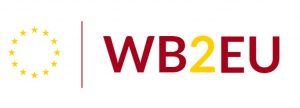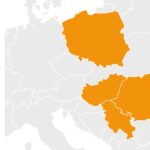Policy Recommendations
- Understand the issue.
- Focus on social and educational policies.
- Improve the quality of the labour market.
Abstract
More than 4 million Romanians have emigrated during the 30+ years since the 1989 Revolution. They send back remittances, and when they return, they bring new skills and attitudes. Migration has also prevented significant social problems in Romania by offering employment to the otherwise unemployable, particularly during years of economic hardship. It can also be argued that the departure of a young, male, intrepid, and often low-skilled population from the home country brought greater social (and, thus, political) stability.
On the downside, migrants and their families (especially children and the elderly) are vulnerable both in relation to the authorities and on a personal level. This may have contributed to radicalisation: The diaspora systematically skews towards parties that appear to be anti-establishment, even when these parties are on the far-right.
It has been argued that the migration of highly skilled workers deprives Romania of growth opportunities. This assertion, however, seems to be political and/or promoted by business advocates, with very little data to confirm or deny it. While it is intuitively clear that returning high-skilled migrants would be an opportunity for the Romanian economy, it is far less clear that the economy or the state have the capacity to put this opportunity to good use.
This Policy Brief recommends that authorities, academia, and think-tanks work harder to better understand the new diaspora. If Romania wants potential emigrants to remain in their home country and perhaps migrants to return, then it must become a more welcoming and inclusive country with better employment and better services to promote employment, including childcare, general healthcare, a stronger social safety net, and education.
Download the PDF file from here
The Policy Brief is published in the framework of the WB2EU project. The project aims at the establishment of a network of renowned think-tanks, do-tanks, universities, higher education institutes and policy centres from the Western Balkans, neighbouring countries and EU member states that will be most decisive for the enlargement process and Europeanisation of the region in the upcoming years. The WB2EU project is co-funded by the European Commission under its Erasmus+ Jean Monnet programme.


Photo by Chris Briggs on Unsplash




